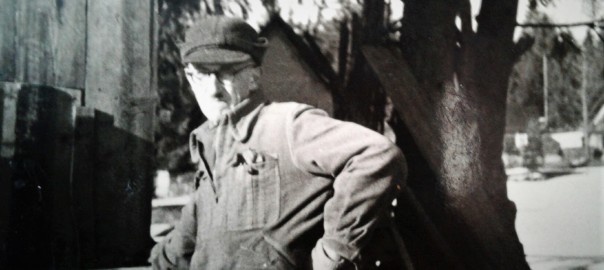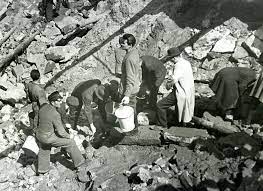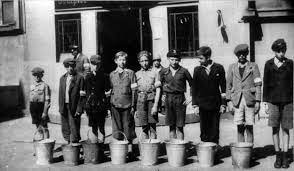My grandfather, Witold Rola Stanisławski (1900 – 1944), was born in 1900, at the beginning of the twentieth century. He spent his first 25 years in Lvov, a city that in pre-war times belonged to Poland and had a rich and vivid artistic, as well as intellectual life. He studied at the Lvov Polytechnic School, in the department of Water Engineering. He belonged to the generation that witnessed Poland’s restoration, participated in the battles of World War I to regain independence, and fully engaged in the reconstruction and modernisation of their homeland.
Before World War II Witold participated in projects involving building or modernising sewage networks in different Polish cities. Like many of his colleagues he considered this task as a basic, obvious duty to his country.
In 1929 he moved with his family to Warsaw and continued working as an expert in the field of water engineering. For the next ten years he was part of a team of planners and engineers modernizing the sewage network and water supply in the capital. In 1935 he became the head of the Polish Bureau of Water Supply and Sewage System. This experience turned out to be crucial a few year later, during the Warsaw Uprising.
In 1939, when the war broke out, as many other citizens, Witold got involved in underground organisations. He continued his professional work in a private planning studio where he made small scale projects. But at the same time, he carried on his underground work, planning the reconstruction of Warsaw after the war.
At the outbreak of the Warsaw Uprising, he was summoned by Mr. Marceli Porowski, code name “Sowa”, the District Delegate of the Polish Government for the city of Warsaw, to organize a special team that would repair bombed or destroyed pumps, pipes, and sewers during the military action. Witold became responsible for the water supply in the fighting city. He began using the code name “Rola”.
The access to potable water was crucial for civilians and soldiers in the city that became the field of an unprecedented battle. It is beyond imagination how the team of technicians could possibly work under constant bombing, raids, fire, risking their lives virtually every hour.
They worked day and night, digging new wells, and repairing pipelines, so people could have access to potable water. Witold, due to his pre-war involvement in countless projects, had all the necessary plans of the sewage system and water supply. As it soon turned out, they became of utmost importance.
Those plans were indispensable not only for the working team but also for the Polish army, involved in the Uprising. The city sewers were used by insurgents as means of transportation between city districts. Then, when the battle got harder and Poles began losing, the sewers were used as underground evacuation routes by thousands of civilians and soldiers.
In the last days of the Uprising, when Germans took hold of most parts of the city, Witold used the same sewer system he had planned before the war to get back to his family house, in the district of Żoliborz. Unfortunately, his house had already been destroyed, so he spent the last few days in a cellar, in another house, nearby.
At dawn, on the 29th of September, just 3 days before the capitulation of the Warsaw Uprising, he left his friends who were hiding in the cellar, promising to bring them some drinking water. He got killed on his way to one of the last working pumps in the neighbourhood. He was buried near his home.
In October 1944, my grandmother Zofia, was informed about her husband’s death and the place where he was buried. In March 1945 she came to Warsaw and found their grave near their old home. The grave had a wooden cross but no name. In the pockets of Witold’s jacket she came across the plans of the city sewers and other personal belongings. Then she transported the body to the family grave in the Powązki Cemetery.
Whenever I think about my grandfather, the devotion to his country, his courage, his sacrifice, I feel there is a simple message that comes not only from this story, but many others, of those who participated in the Warsaw Uprising:
Never let anyone take away your freedom or destroy the bonds of solidarity that connect you with other people. If you remember this, you will always be strong.


